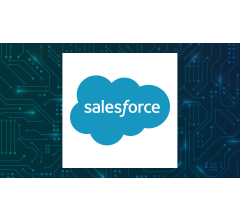The AI CRM Era: The Best AI CRM Tools and Features

The age of AI CRM has officially arrived. While artificial intelligence features have appeared in Customer Relationship Management tools for some time, they’re becoming much more advanced. The introduction of generative AI, natural language processing, and deep learning algorithms has revolutionized the CRM landscape.
Whether you’re optimizing your customer journey mapping strategies, looking for advanced insights into customer preferences, or just investing in team productivity, an AI CRM could be an excellent investment. Some studies even suggest the market generative AI in CRM technology will grow at a rate of 20.8% through 2032.
But what is an AI CRM? What benefits can it offer your business and CX strategy, and how do you choose the right solution? Read on for your complete guide to the AI-powered Customer Relationship Management era.
What is an AI CRM? The Basics
An AI CRM, or Customer Relationship Management platform, is a software solution that supports companies in managing and optimizing customer journeys, with the help of artificial intelligence. A standard CRM solution gives businesses tools for collecting, managing, and tracking customer interactions. It enhances sales, marketing, and customer service activities.
An AI CRM uses various forms of artificial intelligence, from generative AI to NLP and machine learning, to automate and enhance the relationship management process. It can empower companies to analyze vast amounts of customer data and predict trends. Some tools can automate tasks, like customer communication, data entry, and content personalization.
AI CRM software can help businesses forecast sales trends, validate and prioritize leads, and deliver self-service support through customized chatbots. Just as AI-powered contact centers represent the next era of customer service, AI CRMs are the next evolution in relationship management.
What Does AI Do in CRM Software?
Artificial Intelligence is a highly versatile technology that addresses various use cases across multiple business environments. Contact center AI can empower and align teams, improve data insights, and automate customer service tasks. Similarly, AI CRM tools can push the boundaries of customer relations, unlocking countless opportunities.
For instance, AI CRM software can:
- Assist with data management: The growing number of interactions across multiple channels makes data management extremely difficult. AI CRM tools can convert unstructured data into structured data, align insights, and surface insights for teams in seconds.
- Improve communications: Generative AI solutions in a CRM can automatically create email marketing campaigns, social media captions, and personalized content. They can generate instant responses to customer queries and automate follow-up processes.
- Enhance reporting: AI in a CRM system makes drawing deeper insights from data easy. The right tools can analyze everything from customer sentiment to intent, track customer journeys, and offer insights into customer satisfaction metrics.
- Transform sales: In a CRM, AI tools can proactively score and qualify leads for sales teams, generate sales pitches, and coach new employees. Tools like Einstein GPT can predict future sales using real-time data and historical information.
- Increase marketing ROI: By helping companies evaluate the benefits of different marketing channels and campaigns, AI can make marketing campaigns more effective. It can also assist with personalizing campaigns for different segments.
- Boost productivity: By automating routine tasks, AI CRM solutions can save employees time on lead scoring, content creation, and data entry. This frees up time for professionals to focus on building meaningful relationships.
- Enhance customer service: An AI CRM solution can boost customer satisfaction by personalizing interactions, offering 24/7 self-service support, and more. It can even pave the way for proactive customer service with real-time monitoring and alerts.
The Best AI CRM Tools in 2024: 7 Great Options
As artificial intelligence proliferates the CX landscape, the number of CRM vendors offering AI tools has increased. Countless leading vendors now offer CRM tools with AI analytics, chatbots, virtual assistants, and more. Based on our reviews of the world’s leading CRM systems, here are some of our top picks for 2024.
1. HubSpot CRM: The Best Free CRM
If you’re a budget-conscious business looking to take advantage of the latest AI CRM technology, HubSpot could be ideal. Even before you upgrade to paid plans like HubSpot’s “Service Hub,” you can leverage a range of AI tools for free.
HubSpot features built-in tools for creating your own customized chatbot for self-service and AI-powered lead scoring and validation features. AI website generators and content writers are in the company’s toolkit, AI-powered reports and analytics.
HubSpot infuses AI into everything from sentiment analysis to sales forecasting to help businesses thrive, regardless of their budget.
Pros:
- Automatic lead scoring and analysis
- Intuitive generative AI tools
- Versatile and customizable chatbots
- Sales forecasting and analytics
- Free plan for beginners
Cons:
- Some advanced features are reserved for paid plans
- Occasional generative AI hallucinations
2. Freshsales: The Best AI-Powered Chatbots
Freshsales, from Freshworks, is a sales-focused CRM solution with various tools to streamline finding, nurturing, and converting leads. The easy-to-use platform includes Freddy AI, a generative AI assistant that can segment leads and run campaigns on your behalf.
With AI in Freshsales, you can create comprehensive, personalized sales and marketing strategies, deliver proactive customer service, and improve your business insights. There are even predictive analytical tools and sales forecasting features to address various needs.
Freshsales includes AI capabilities for tracking customer journeys, delivering real-time customer service, and creating 360-degree customer profiles. You can also use automation to send welcome emails or notifications to customers based on specific behaviors.
Pros:
- Exceptional journey tracking and user profiles
- End-to-end automation for marketing campaigns
- Intelligent insights and lead qualification
- Real-time customer service bots
- Simple user interface
Cons:
- No AI tools in the free plan
- Fewer integration options than some competitors
3. Pipedrive: Best AI CRM for Sales Teams
Pipedrive has made several AI-focused updates to its sales CRM in recent years. The user-friendly platform combines artificial intelligence and automation to help sales teams capture and convert more leads. There’s an AI-powered sales assistant bot that can analyze sales information in real time to deliver best-action suggestions to reps.
Pipedrive’s AI technology can also adapt workflow suggestions to each employee based on their performance metrics. With Pipedrive, you’ll have a comprehensive platform to view and respond to CX trends in seconds and monitor opportunities.
Plus, Pipedrive can automate various parts of the sales process, from sending insights to business leaders to issuing intelligent notifications.
Pros:
- Extensive sales and agent assistant tools
- Enhanced lead capture and data collection
- Intuitive reports and notifications
- Vast range of integration options
- Customizable chatbots
Cons:
- No free plan
- Limited contact management features
4. Zoho CRM: Best for Broad AI Functionality
Zoho CRM is a highly flexible solution, ideal for businesses of all sizes. It features a straightforward user interface and simple integrations with various business tools. Zoho’s AI solutions include the AI sales assistant, Zia, which empowers customer-facing teams to deliver more meaningful interactions. The assistant can predict the probability of a conversion in an instant.
It can also detect the best time to interact with customers, monitor sales and support trends, and inform business leaders of anomalies. Companies can even build custom models with Zia to help automate and optimize various tasks. Plus, Zia can help with automated upselling and cross-selling, data capture, and customer service.
If you’re looking for an all-in-one solution for intelligent automation and employee empowerment, Zoho and Zia are an excellent choice. There are even native generative AI capabilities for creating personalized sales, service, and marketing content.
Pros:
- Integrations with a range of business tools
- Customizable chatbots for self-service
- Generative AI and OpenAI integrations
- Excellent automation options
- Fantastic privacy and compliance
Cons:
- Limited cloud storage
- No rebranding options for chatbots
5. Zendesk: Best AI CRM for Customer Service
Zendesk AI is explicitly built for customer service teams. The technology is built on billions of genuine customer service interactions, ensuring it aligns with the needs of CX experts. Zendesk has its own dedicated generative AI solution powered by Open AI. You can use this to create bots, write support articles, and more with just a couple of clicks.
There are also agent-focused AI tools, such as virtual assistants, that can surface crucial customer information and help agents respond rapidly to questions. Plus, you can use Zendesk’s AI tools to create your comprehensive knowledge base with minimal effort.
Zendesk even has its own AI tools for sales teams, which include intelligent lead scoring systems, automated lead nurturing, and sales forecasting technology. Plus, businesses can access a fantastic recommendation engine and intelligent notifications for team members.
Pros:
- Comprehensive sales and customer service tools
- Omnichannel support options (voice and text)
- Customizable chatbots powered by OpenAI
- Automated lead nurturing and self-service
- In-depth business insights
Cons:
- Some limitations for email customization
- Slight learning curve for bot creation
6. Salesforce – The Best AI Assistant for Teams
Since introducing the world to Einstein, Salesforce has become a market leader in AI CRM tools. The company has offered everything from predictive lead scoring and sales forecasting features to solutions for consolidating and analyzing customer data for years.
Salesforce Einstein Copilot, the new GPT solution from Salesforce, can instantly create content and respond to customer queries with greater creativity and more. Plus, there are dedicated “Copilot” options available for each group in your team. Salesforce has AI solutions for sales, service, marketing, and even commerce teams.
With Einstein Copilot Studio, companies can build their own apps, create comprehensive prompts, and even tweak their LLM models.
Pros:
- Full integration with the complete Salesforce suite
- Extensive data analytics and insights
- Powerful chatbot customization tools
- Customer sentiment and intent detection
- Sales forecasting, qualification, and insights
Cons:
- Slight learning curve for beginners
- Limited cloud storage options
7. SugarCRM: Best Mid-Market CRM
SugarCRM is packed full of unique features for growing companies. With support for more than 30 languages and a modular structure, the CRM solution can be adapted to suit any need. With Sugar Studio, you can build your own workflows and customize your CRM experience. Plus, there are tons of options for automating repetitive and time-consuming tasks.
SugarCRM bakes AI technology into its analytics suite for predictive reporting and in-depth insights. There are sentiment analysis tools and intelligent routing capabilities to help boost business productivity and efficiency. What’s more, SugarCRM has introduced a range of generative AI solutions for different customer-facing teams.
There are generative AI solutions for sales, marketing, and customer service, offering everything from content creation and summarization to real-time coaching.
Pros:
- Generative AI for a range of use cases
- Extensive automation options
- Exceptionally customizable CRM platform
- Powerful predictions and reporting
- User-friendly interface
Cons:
- It can be more expensive than some alternatives
- Some AI hallucinations are possible
How to Choose the Best AI CRM Software
While AI CRM software holds incredible potential for many businesses, many companies have yet to embrace the revolution. One study found that only 12% of CRM users use AI in their customer relationship management tools. If you’re not sure where to get started, here are some points to keep in mind when assessing the available tools:
- Consider your business needs: What challenges do you want to overcome with your AI tools? Do you want to improve efficiency, support agents, or deliver self-service? Are you looking for deeper analytics, sentiment analysis, or journey mapping?
- Look at data requirements: If your current data landscape is fragmented, looking for a CRM solution to help you consolidate and cleanse your data could be a good idea. Look for tools that can integrate with your existing ecosystem.
- Remember scalability: An effective AI CRM should be able to scale alongside your business, offering new functionality and extra features as you grow. You may even choose a modular solution that allows you to add new capabilities over time.
- Consider customization: If you’re leveraging an AI CRM to build bots for your agents or customers, look for customization. Ensure you can adapt the bots you build to suit your tone of voice and brand personality.
- Address user experience: The best AI tools are always easy to use and intuitive. A well-designed user interface can enhance productivity and user adoption. Look for training resources, support, and documentation provided by the vendor too.
- Security and compliance: Consider how the AI tools in your CRM will use and manage your data. Think about the reporting guidelines you need to adhere to and the ethical requirements you should consider in your industry.
It’s also worth considering features you might want to adopt, such as predictive analytics for proactive support or generative AI.
The Rise of the AI CRM
While the “AI CRM” isn’t an entirely new concept for many CX leaders, the tools available to today’s teams are growing more advanced. The evolving complexity of customer relationships and journeys, increased pressure on business teams, and changing buyer expectations are powering an AI revolution.
Today’s AI CRM solutions can empower companies to overcome various challenges, from managing complex interactions to forecasting future demand. The key to success is choosing an AI CRM tool that aligns with your company’s requirements.
Think carefully about the goals you want to achieve, how you can foster growth with AI, and what features will best empower your employees. Additionally, remember not to overlook the importance of compliance when implementing data-driven tools.



